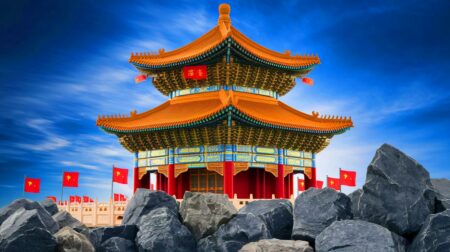Zhong Shanshan, China’s wealthiest individual and founder of Nongfu Springs, recently delivered a rare and sharp critique targeting both Chinese e-commerce platforms and the government’s perceived inaction in managing aggressive pricing practices. His remarks, highly unusual in China’s tightly controlled environment, have drawn significant attention for their boldness.
During a visit to an eastern Chinese county, Zhong condemned platforms like Pinduoduo for fueling price wars that have disrupted industries and eroded the value of brands. Pinduoduo, owned by PDD Holdings, has gained popularity through its aggressive pricing strategies, but Zhong claims these tactics are detrimental to China’s economy. Speaking to state-owned outlet The Paper, he remarked, “Pinduoduo’s pricing system has done great harm to China’s brands and industries. It is not just bad money driving out good money; it’s an industry-wide issue where pricing has become the focus.”
Zhong’s criticism extended beyond businesses to the government, which he accused of negligence for failing to intervene. In remarks shared by Sina Technology, Zhong said, “The government has not intervened in this industry orientation, and I think the government has been negligent in its duty.”
Such direct criticism of both private enterprises and the government is exceedingly rare in China. The country’s business leaders have historically refrained from public dissent, fearing repercussions. High-profile examples include Alibaba’s Jack Ma, who faced significant regulatory backlash following his critical remarks about Chinese financial regulators in 2020.
Price Wars Amid Economic Challenges
Pinduoduo, founded in 2015 by Colin Huang, has experienced meteoric growth, leveraging China’s shifting consumer habits during a period of economic slowdown. As the economy struggles and job prospects dwindle, many Chinese consumers are opting for heavily discounted products, even from luxury and premium brands. The race to offer the lowest prices has spurred an industry-wide focus on cost-cutting, to the detriment of quality and brand value.
Western companies targeting China’s high-end market have also had to adapt, slashing prices to remain competitive. This trend underscores the broader economic challenges facing the world’s second-largest economy, where spending patterns reflect increasing financial caution among consumers.
A Tough Year for Zhong
Zhong’s remarks come at the end of a challenging year for the billionaire. Earlier in 2023, he faced nationalist backlash over accusations of insufficient patriotism, which significantly impacted Nongfu Springs’ market value. The campaign reportedly wiped tens of billions off the company’s capitalization and hurt its sales, temporarily displacing Zhong as China’s richest individual.
Despite these setbacks, Zhong has reclaimed his position at the top of China’s wealth rankings, with a net worth of $52.2 billion according to the Bloomberg Billionaires Index. His bold criticism of both tech giants and government policies highlights growing frustration among Chinese business leaders amid the country’s ongoing economic challenges.
As China navigates this tumultuous economic period, Zhong’s candid remarks may spark further debate about the balance between regulation, corporate practices, and consumer welfare.
Did you like it? 4.4/5 (25)








